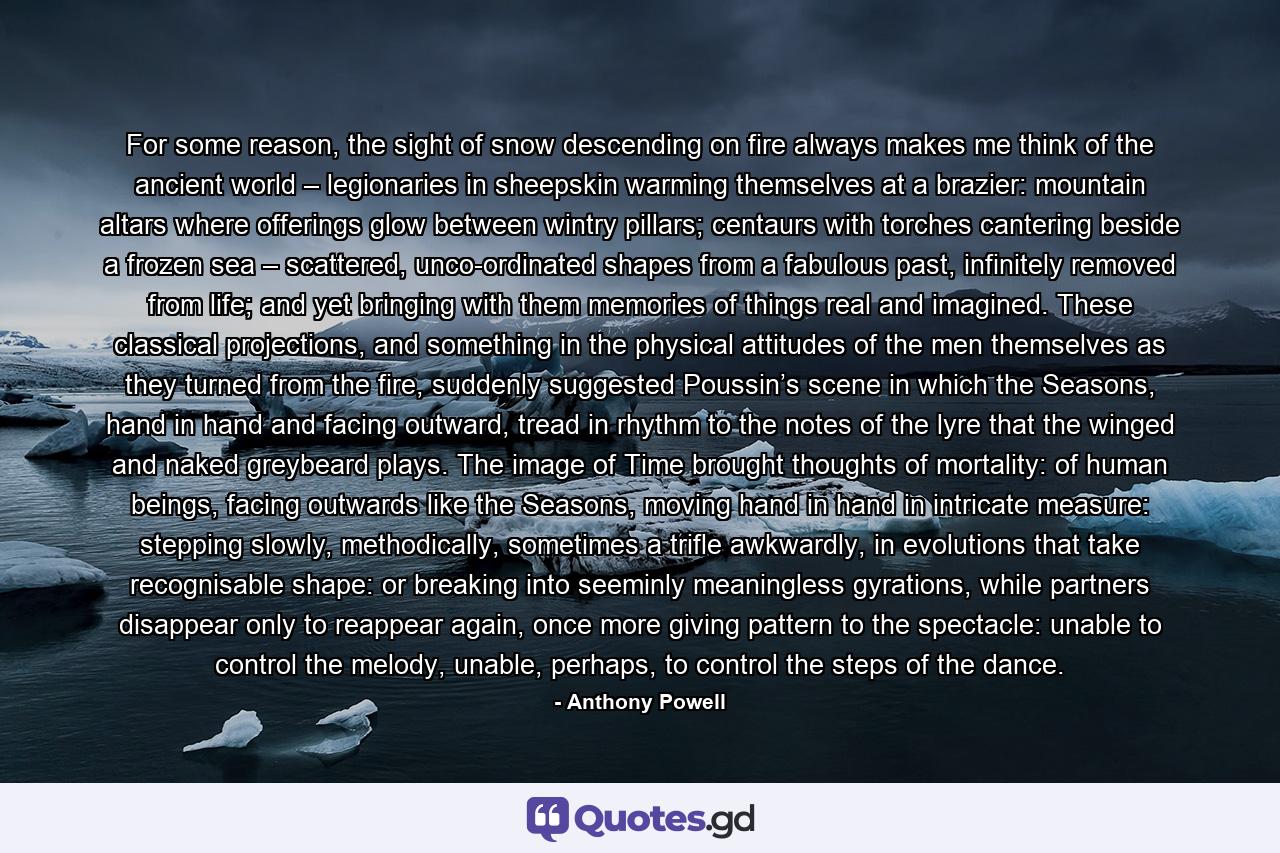For some reason, the sight of snow descending on fire always makes me think of the ancient world – legionaries in sheepskin warming themselves at a brazier: mountain altars where offerings glow between wintry pillars; centaurs with torches cantering beside a frozen sea – scattered, unco-ordinated shapes from a fabulous past, infinitely removed from life; and yet bringing with them memories of things real and imagined. These classical projections, and something in the physical attitudes of the men themselves as they turned from the fire, suddenly suggested Poussin’s scene in which the Seasons, hand in hand and facing outward, tread in rhythm to the notes of the lyre that the winged and naked greybeard plays. The image of Time brought thoughts of mortality: of human beings, facing outwards like the Seasons, moving hand in hand in intricate measure: stepping slowly, methodically, sometimes a trifle awkwardly, in evolutions that take recognisable shape: or breaking into seeminly meaningless gyrations, while partners disappear only to reappear again, once more giving pattern to the spectacle: unable to control the melody, unable, perhaps, to control the steps of the dance.
